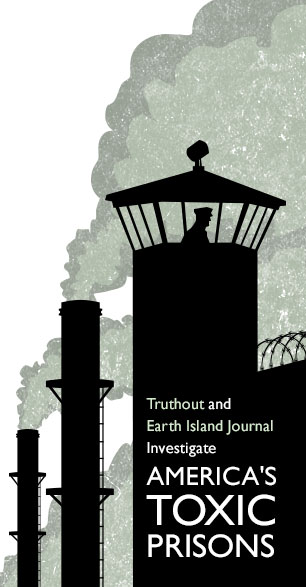
Part of the Series
America's Toxic Prisons
Last month the United States Department of Justice (DOJ) withdrew its request for funding for construction of a maximum-security prison atop a former mountaintop-removal coal-mining site in eastern Kentucky.
The proposed $444 million facility, planned for Letcher County, has faced ongoing opposition from environmental and human rights organizations who have expressed a wide range of concerns about potential ecological and health impacts of the project. “Building this prison would have been terrible for the health of prisoners, the surrounding community and all the wildlife in the area,” said Lori Ann Bird, who is environmental health program director with the nonprofit Center for Biological Diversity.
 The Human Rights Defense Center, a nonprofit that advocates on behalf of people held in U.S. detention facilities, pointed to the history of mining-related pollution in the area — including contamination of drinking water that could be used for the prison. The Human Rights Defense Center also noted the ongoing risk posed by more than a dozen active gas wells near the proposed site, as well as possible radon intrusion linked to coal mining in the area.
The Human Rights Defense Center, a nonprofit that advocates on behalf of people held in U.S. detention facilities, pointed to the history of mining-related pollution in the area — including contamination of drinking water that could be used for the prison. The Human Rights Defense Center also noted the ongoing risk posed by more than a dozen active gas wells near the proposed site, as well as possible radon intrusion linked to coal mining in the area.
In a comment filed in response to the Federal Bureau of Prisons’ (BOP) 2015 environmental impact statement for the facility, opponents also cited impacts on the local community — including potential water pollution from the prison itself — as well as on nearby habitat and wildlife. Two federally endangered species, the Indiana bat and the gray bat, are found in the region, as are some 60 other species with varying levels of state and federal protections.
“It’s a pretty huge step toward victory,” Panagioti Tsolkas, co-founder of the Prison Ecology Project, a program of the Human Rights Defense Center, said of the DOJ’s decision to abandon the plan.
The Prison Ecology Project and the Center for Biological Diversity point to growing local opposition, in conjunction with a coordinated campaign by advocates, as triggering the withdrawal. “This has been a tremendous effort by a lot of diverse groups coming together to oppose this prison, and shows the powerful impact we can achieve when the community comes together with activists from around the country to oppose a destructive project,” Bird said.
In its announcement of the withdrawal of its request for funding, the DOJ cited a declining prison population over the past several years, and noted that the BOP could expand capacity at existing facilities and through private prisons if necessary. (The Federal Bureau of Prisons is a subdivision of the U.S. Department of Justice.)
Not everyone has expressed support for the DOJ’s decision. Local representative Hal Rogers (R-KY) argues that overcrowding in federal prisons necessitates new construction. In a June hearing on the Department of Justice’s fiscal year 2018 budget, Representative Rogers argued that the project should proceed, emphasizing that Congress had already appropriated funding for the prison: “Congress has decided this and it’s the Congress that controls the purse strings of the country… The money is there — appropriated, authorized, everything in order.” Rogers has also noted that the prison would be an important source of new jobs for an economically moribund region (though research shows that prisons generally don’t improve the local economy and are, in fact, more likely to harm rather than help host communities).
Opponents of the project remain cautiously optimistic while acknowledging that the victory may be temporary — Congress hasn’t yet passed the 2018 budget, and there’s always the possibility that the DOJ could reverse course again at a later time. For now, the Prison Ecology Project is setting its sights on the next battle or battles, which might include: FMC Carswell, a women’s prison in Texas built on a military base and surrounded by Superfund sites; a proposal to build a new prison on a landfill in Utah; a Hawaiian prison where the BOP has tried to skirt the environmental review process; and a proposal to build a women’s jail on a toxic Superfund site in Los Angeles County.
Tsolkas thinks the Letcher County win will lend momentum to these other fights. “The DOJ said basically they don’t want the prison, they don’t need it…. That’s a powerful position to be fighting from.”
This report is part of a collaborative series on the environment and mass incarceration by Earth Island Journal and Truthout. It was supported by a grant from the Fund for Investigative Journalism.
Join us in defending the truth before it’s too late
The future of independent journalism is uncertain, and the consequences of losing it are too grave to ignore. To ensure Truthout remains safe, strong, and free, we need to raise $46,000 in the next 7 days. Every dollar raised goes directly toward the costs of producing news you can trust.
Please give what you can — because by supporting us with a tax-deductible donation, you’re not just preserving a source of news, you’re helping to safeguard what’s left of our democracy.